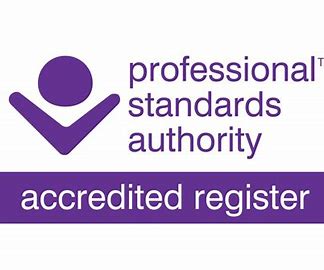Administering a register of healthcare chaplains/spiritual care professionals is a core function of the UKBHC. The register is accredited by the Professional Standards Authority.
The UKBHC maintains a professional register to demonstrate the accountability of healthcare chaplains/spiritual care professionals to the patients and their carers, to employers and colleagues in healthcare chaplaincy and other healthcare professions. The maintaining of a register will, in turn, promote high standards of practice and behaviour and support professional regulation. Full Registrant Chaplains/Spiritual Care Professionals approved by the Board will be entitled to refer to themselves as a ‘Board Registered Chaplain’. Those who are not Full Registrants are members of UKBHC.
As visible evidence of our professional registration with UKBHC, and as approved by PSA, all Full Registrant chaplains/spiritual care professionals are encouraged to include both UKBHC and PSA logos/quality marks as part of their e-mail signature and on other chaplaincy communication. This helps promote the profession and gives assurance of their standing and practice.
Like all healthcare professionals, chaplains/spiritual care professionals are required to meet educational standards, participate in training and maintain a record of continuous professional development. You can find out more about the standards of education healthcare chaplains/spiritual care professionals are required to meet here.
Full registration status would indicate that a chaplain/spiritual care professional is working within the professional parameters set down by the UKBHC and is deemed fit to practise. To maintain registration a chaplain needs to demonstrate:
- Complete, accurate and contemporary personal record.
- A Continuing Professional Development activity log.
- No known professional misconduct issues.
- A chaplain/spiritual care professional may have a different UKBHC membership including ‘Associate’, ‘Provisional/Student’, ‘Affiliate’, ‘Senior Honorary Associate’, ‘Registered with conditions’, ‘Suspended’, ‘Removed’ or ‘Not Registered’.
One of the major benefits of the creation and maintenance of a register of healthcare chaplains/spiritual care professionals is public safety. The UKBHC would want to hear from patients and carers who have any concerns about the fitness of any chaplain/spiritual care professional to practise – see ‘Making a Complaint‘.
Further Information Regarding the Suspension or Removal of Registered or Member Chaplains/Spiritual Care Professionals
If a Board Registered Chaplain/UKBHC member has been disciplined, suspended, or removed, that designation will be shown beside the chaplain/spiritual care professional’s name together with the date of same. If you wish to know the reason and date of suspension or removal of a board registered chaplain/UKBHC member, please contact the Registrar while our web-site infrastructure is being up-dated.
Dual Registration
Some chaplains/spiritual care professionals who are on the UKBHC Register also have dual registration. For professional or other reasons, they are registrants of two or more professional registers. Please use The Register’s search function to see if a chaplain/spiritual care professional is a Board Registered Chaplain/UKBHC member and their registration status.
Some chaplains/spiritual care professionals for instance also practice as counsellors or psychotherapists. In this instance, a registered chaplain/spiritual care professional has trained in counselling or psychotherapy and therefore registers in two different but allied fields.
Information sharing protocol
Together with 17 other organisations running accredited registers, we have signed up to an information sharing protocol. We have all agreed to inform each other about, and to take into account, decisions made through the other organisations’ professional conduct proceedings which have resulted in an individual being removed from a register.
You can read the full protocol here: Accredited registers information sharing protocol
Below are links to other professional bodies so that you may know of them and if necessary be able to access them easily to progress enquiries or complaints.
Association of Child Psychotherapists
British Association for Counselling and Psychotherapy, which also has a specific register page (see below).
British Association of Play Therapists
British Psychoanalytic Council
Health and Care Professions Council
The National Counselling Society
The Nursing and Midwifery Council
UKCP which also has a specific register page: UKCP Register
Professional Standards Authority
Patient & Public Involvement
Listed below are a number of websites related to patient and public involvement and recent health legislation.
National Library for Health: This Library aims to support the implementation of patient, user, carer and public involvement in health care by providing access, in one location, to the best information which is freely available on the Web.
Department of Health: Provides policy background, information and links to publications. Click here for information specific to patient and public involvement.
Legislation in England: Section 242 of the NHS Act 2006 requires NHS organisations in England to involve and consult patients and the public in:
1. planning of the provision of services
2. development and consideration of proposals for changes in the way those services are provided
3. decisions made by the NHS organisation affecting the operation of services
Further, the Local Government and Public Involvement in Health Act 2007, enhances and clarifies section 242, stressing its relevance to the manner in which services are delivered and the range of services. It also places a new duty on Strategic Health Authorities (SHAs) and Primary Care Trusts (PCTs) to report on consultation.


